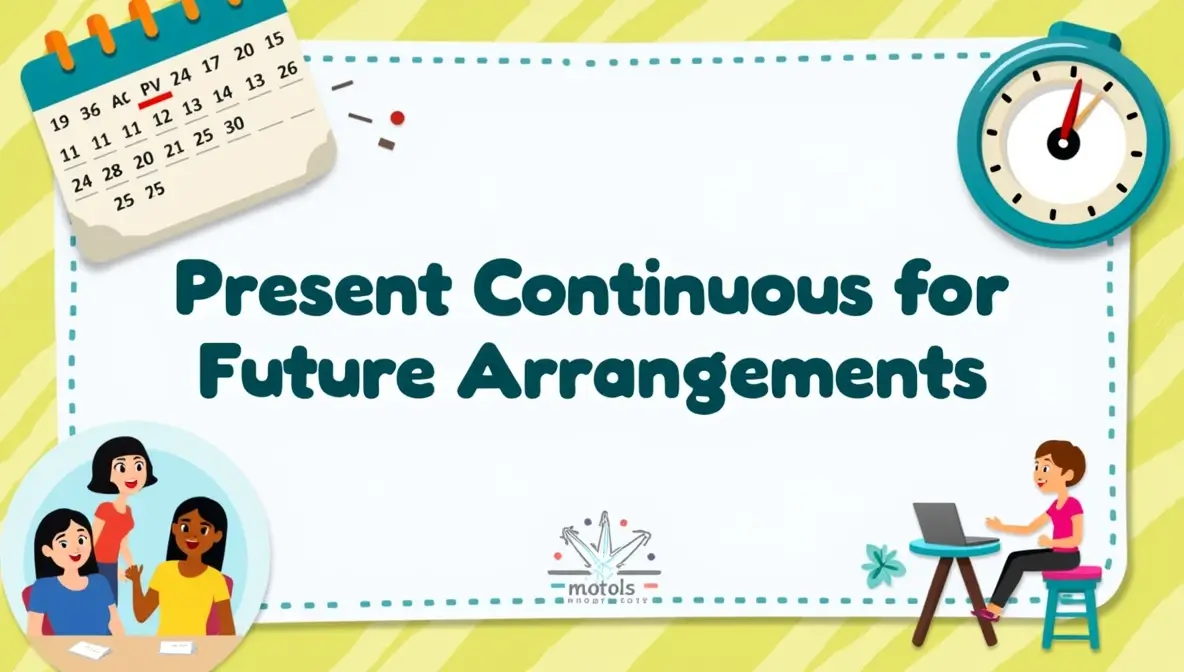Present continuous for future arrangements
- Home ›
- Grammar ›
- A2 Pre-intermediate ›
- Present continuous for fu...




Choose the most appropriate future forms to complete the dialogues below. CHOOSE THE PRESENT CONTINUOUS where possible.
Choose the most appropriate future forms for the sentences below. Choose the present continuous where possible.
Fill in the gaps with the most appropriate future forms: present continuous, will or be going to . Use the verbs in brackets and choose the present continuous where possible.

- 10 January, 2025
- 1225
- Grammar
- A2 Pre-intermediate
Present continuous for future arrangements
The Present Continuous tense is not only used for actions happening right now but also for future arrangements. These are plans made for the future, especially when the time and place have been agreed upon with others.
Key Points to Remember
- The Present Continuous is commonly used when a specific time or place has been arranged.
- Future time expressions like tomorrow, next week, or at 5 PM are often included in the sentence.
Forming the Present Continuous
The structure of the Present Continuous is:
Subject + am/is/are + verb(-ing)
Examples
- I am meeting Sarah tomorrow at 6 PM. (The meeting is already arranged.)
- We are flying to London next week. (The tickets have been booked.)
- She is going shopping tomorrow. (Incorrect because it does not imply an arrangement with others.)
Present Continuous vs. "Be Going To"
Although both can be used for future plans, they have distinct differences:
- We are having dinner with friends tonight. (An arrangement is made.)
- We are going to have dinner with friends tonight. (Less emphasis on arrangement.)
Use "be going to" when you want to focus on your intention rather than an arrangement:
- I am going to start a new course next month. (It’s my intention, but arrangements might not be finalized.)
Common Mistakes
- I am going to the party. (Incorrect if no arrangement is implied.)
- I am going to start studying. (Correct because it emphasizes intention.)
Practice Makes Perfect
Here are some sentences to check your understanding. Identify if they are correct or incorrect:
- Example 1: We are seeing the doctor tomorrow. Correct
- Example 2: They are going to watch a movie tonight. Incorrect
Unfortunately, we currently do not have teaching materials available on this topic. We are working with all our efforts to prepare it. You can subscribe to Verbooze to be notified once the teaching materials are ready.




English Learning Made Easy & Accessible for Everyone
Boost your English skills with interactive lessons, grammar explanations, reading and listening exercises, and real-time feedback. Join our growing community and start improving today — all completely free!

